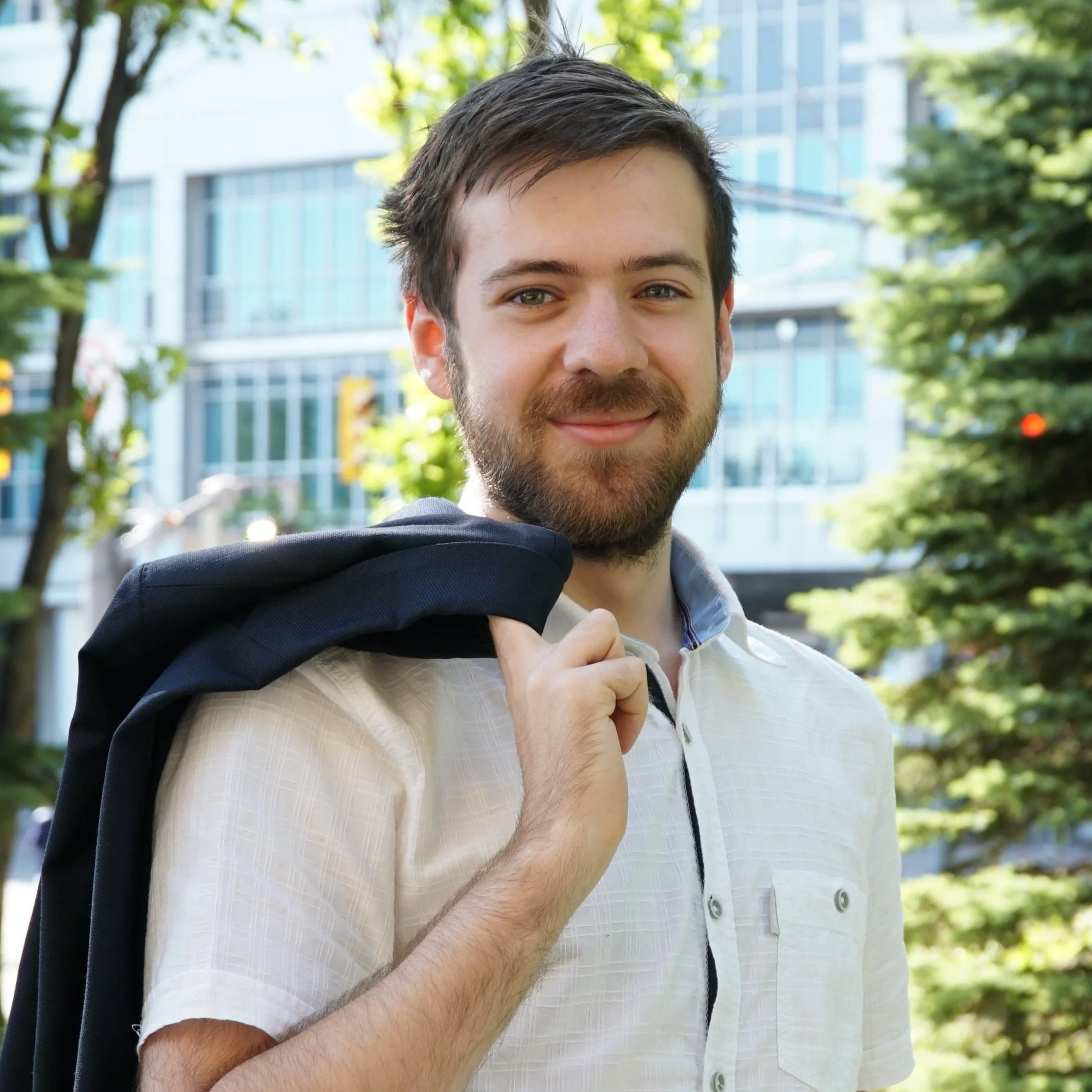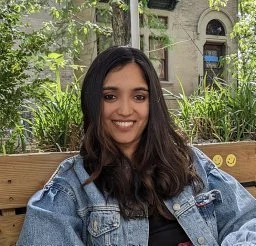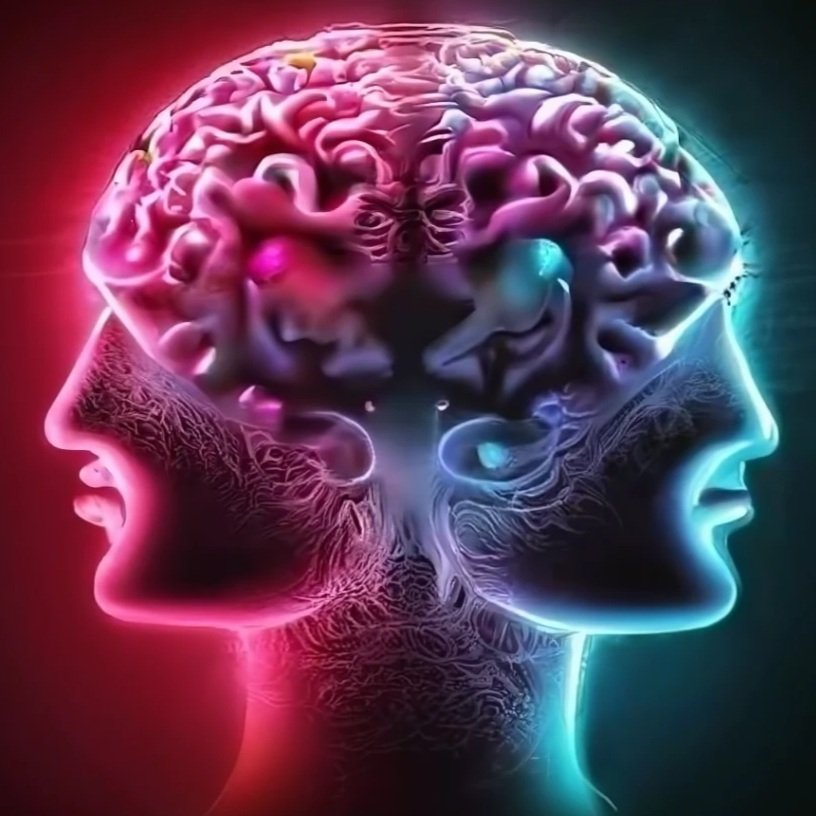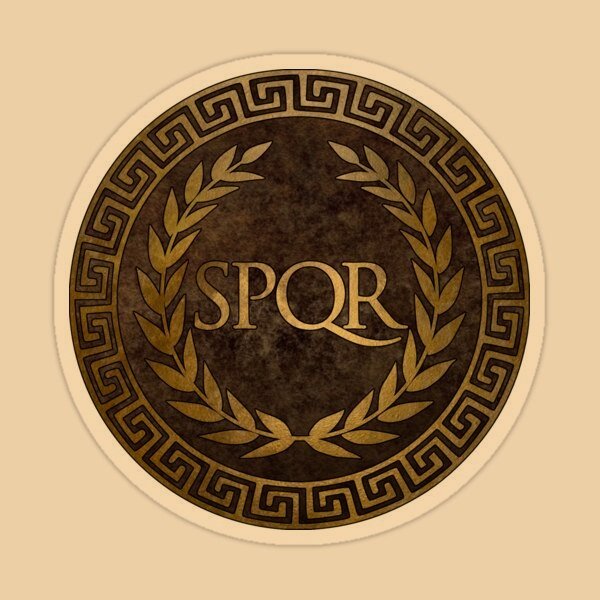
Home (Current Conference)
The Fifth International Convention on the
Mathematics Of Neuroscience and AI
Tuesday 28th - Friday 31st May, 2024.
Rome.
Two decades into the 21st century, how close are we to to a unified mathematical model of the brain? How close are we to building an artificial intelligence that can surpass it?
In this exploratory symposium, we invite submissions presenting mathematical models of brain function or computational ideas about intelligence.
We give priority to those models that can account for brain or behavioural data, or provide simulations to that effect.
Keynote Speakers
Max Planck Institute, Tübingen
Ecole Normale Supérieure, Paris
Cornell University
Google DeepMind
UC Berkeley
Technische Universität Graz
National Research Council of Italy, Rome
Sessions
Chair: Dr Ilia Sucholutsky
Princeton
Chair: Dr Ishita Dasgupta
Google DeepMind
Invited speakers
Professor Najoung Kim (BU, Google)
Professor Rafal Bogacz (Oxford)
Dr André Barreto (DeepMind)
Dr Wilka Carvalho (Harvard)
Chair: Dr Francesca Mastrogiuseppe
Champalimaud Center for the Unknown
Chair: Dr James Whittington
Stanford / Oxford / Zyphra
Invited speakers
Professor Athena Akrami (UCL)
Professor Nicolas Brunel (Duke)
Dr Sophia Sanborn (Science)
Dr Lea Duncker (Stanford)
Dr Kris Jensen (UCL)
Chair: Dr Antonella Maselli
NRC Italy
Chair: Dr Ruairidh Battleday
Harvard
Invited speakers
Professor Dagmar Sternad (Northeastern)
Professor Bill Thompson (UC Berkeley)
Professor Samuel McDougle (Yale)
Dr Fred Callaway (NYU / Harvard)
Dr Maria Eckstein (DeepMind)
Chair: Professor Dan Nicolau Jr
King’s College London
Chair: Yasmine Ayman
Harvard
Invited speakers
Professor Christine Grienberger (Brandeis)
About the convention
One of the major scientific projects of the 20th century was the study of computation. We could build devices that could carry out some of the operations previously only possible in the human mind. This analogy and perspective has proven extremely productive, with neural and cognitive theories inspiring the development of powerful algorithms, and vice versa in the computational study of the brain and mind.
In this convention we aim to identify and develop novel computational frameworks for the study of the brain and mind, and take those findings back into the creation of novel algorithms for solving difficult problems and simulating intelligence.
Our content comes from four main fields: biocomputation, neural theory, cognitive science, and machine learning / artificial intelligence (AI). Each of these fields has developed a distinct computational language and set of concepts pertaining to a set of overlapping underlying principles.
By bringing leading researchers together from these fields together in on-line and off-line settings, we aim to build bridges between them, such that novel findings, insights, and frameworks can take spark.
Biocomputation
The prevailing modern scientific paradigm of the brain is a computational one. But if the brain is a computer—which is an 'if'—it must have operating principles, abilities and limitations that are radically different to those of artificial computers. In this session, talks will explore diverse topics within quantitative neuroscience that consider the brain as a device for computation, broadly conceived.
Session Chairs
Professor Dan V. Nicolau Jr (King’s College London)
Yasmine Ayman (Harvard University)
Keynote Talks
Professor Wolfgang Maass (Technische Universität Graz): Local prediction-learning in high-dimensional spaces enables neural networks to plan
Professor Sophie Deneve (Ecole Normale Supérieure, Paris)
Invited Talks
Professor Christine Grienberger (Brandeis): Dendritic computations underlying experience-dependent hippocampal representation
Professor Dan V. Nicolau Jr (King’s College London): A Rose by Any Other Name: Towards a Mathematical Theory of the Neuroimmune System
Dr James Whittington (Oxford / Stanford / Zyphra): Unifying the mechanisms of the hippocampal and prefrontal cognitive maps
Spotlight Talks
Paul Haider (University of Bern): Backpropagation through space, time and the brain
Deng Pan (Oxford): Structure learning in the human hippocampus and orbitofrontal cortex
Francesca Mignacco (CUNY Graduate Center & Princeton University): Nonlinear manifold capacity theory with contextual information
Angus Chadwick (University of Edinburgh): ROTATIONAL DYNAMICS ENABLES NOISE-ROBUST WORKING MEMORY
Carla Griffiths (Sainsbury Wellcome Centre): Neural mechanisms of auditory perceptual constancy emerge in trained animals
Harsha Gurnani (University of Washington): Feedback controllability constrains learning timescales of motor adaptation
Arash Golmohammadi (Department for Neuro- and Sensory Physiology, University Medical Center Göttingen): Heterogeneity as an algorithmic feature of neural networks
Sacha Sokoloski (University of Tuebingen): Analytically-tractable hierarchical models for neural data analysis and normative modelling
Alejandro Chinea Manrique de Lara (UNED): Cetacean's Brain Evolution: The Intriguing Loss of Cortical Layer IV and the Thermodynamics of Heat Dissipation in the Brain
Neural Theory
While neuroscientists have increasingly powerful deep learning models that predict neural responses, it is not clear that these models are correspondingly increasing our understanding of what neurons are actually doing. In this session, we will take a more mechanistic approach to understanding how networks of neurons afford complex computations, both by both considering mechanistic neural model along with mathematical theories that say how neurons should behave and crucially why they behave that way.
Session Chairs
Dr James Whittington (University of Oxford; Stanford University)
Dr Francesca Mastrogiuseppe (Champalimaud Center for the Unknown)
Keynote Talks
Professor Peter Dayan (Max Planck Institute, Tübingen): Controlling the Controller: Instrumental Manipulations of Pavlovian Influences via Dopamine
Professor Mackenzie Mathis (EPFL): Learnable Neural Dynamics
Invited Talks
Professor Athena Akrami (UCL): Circuits and computations for learning and exploiting sensory statistics
Professor Nicolas Brunel (Duke): Roles of inhibition in shaping the response of cortical networks
Dr Sophia Sanborn (Science): Symmetry and Universality
Dr Lea Duncker (Stanford): Evaluating dynamical systems hypotheses using direct neural perturbations
Dr Kris Jensen (UCL): An attractor model of planning in frontal cortex
Spotlight Talks
Cristiano Capone (ISS): Online network reconfiguration: non-synaptic learning in RNNs
Sam Hall-McMaster (Harvard University): Neural Prioritisation of Past Solutions Supports Generalisation
Alexander Mathis (EPFL): Modeling sensorimotor circuits with machine learning: hypotheses, inductive biases, latent noise and curricula
Stefano Diomedi (NRC Italy): Neural subspaces in three Parietal areas during reaching planning and execution
Sofia Raglio (Sapienza): Clones of biological agents solving cognitive task: hints on brain computation paradigms
Arno Granier (Bern): Confidence estimation and second-order errors in cortical circuits
Erik Hermansen (NTNU): The Ontogeny of the Grid Cell Network – Uncovering the Topology of Neural Representations
Steeve Laquitaine (EPFL): Cell types and layers differently shape the geometry of neural representations in a biophysically detailed model of the neocortical microcircuit.
Subhadra Mokashe (Brandeis University): Competition between memories for reactivation as a mechanism for long-delay credit assignment
Brendan A. Bicknell (UCL): Fast and slow synaptic plasticity enables concurrent control and learning
Vezha Boboeva (Sainsbury Wellcome Centre, UCL): Computational principles underlying the learning of sequential regularities in recurrent networks
Cognitive Science
Design by Amey Zhang
How should an intelligent agent behave in order to best realize their goals? What inferences or actions should they make in order to solve an important computational task? Cognitive science aims to answer these questions at an abstract computational level, using tools from probability theory, statistical inference, and elsewhere.
In this session we will discuss how such optimal behavior should change under different conditions of uncertainty, background knowledge, multiple agents, or constraints on resource. This can be used to understand human behavior in the real world or the lab, as well as build artificial agents that learn robust and generalizable world models from small amounts of data.
Session Chairs
Dr Ruairidh Battleday (Harvard / MIT)
Dr Antonella Maselli (NRC Italy)
Keynote Talks
Professor Anne Collins (UC Berkeley): Pitfalls and advances in computational cognitive modeling
Dr Giovanni Pezzulo (National Research Council of Italy, Rome): Embodied decision-making and planning
Invited Talks
Professor Bill Thompson (University of California, Berkeley): Interactive Discovery of Program-like Social Norms
Professor Dagmar Sternad (Northeastern): Human Control of Dynamically Complex Objects: Predictability, Stability and Embodiment
Professor Samuel McDougle (Yale): Abstractions in Motor Memory and Planning
Dr Fred Callaway (NYU / Harvard): Cultural evolution of compositional problem solving
Dr Maria Eckstein (DeepMind): Understanding Human Learning and Abstraction Using Cognitive Models and Artificial Neural Networks
Spotlight Talks
Nora Harhen (UC Irvine): Developmental differences in exploration reveal differences in structure inference
Simone D'Ambrogio (Oxford): Discovery of Cognitive Strategies for Information Sampling with Deep Cognitive Modelling and Investigation of their Neural Basis
Gaia Molinaro (UC Berkeley): Latent learning progress guides hierarchical goal selection in humans
Lucy Lai (Harvard): Policy regularization in the brain enables robustness and flexibility
Roey Schurr (Harvard): Dynamic computational phenotyping of human cognition
Yulin Dong (Peking): Optimal mental representation of social networks explains biases in social learning and perception
Antonino Visalli (Padova): Extensions of the Hierarchical Gaussian Filter to Wiener diffusion processes
Frank Tong (Vanderbilt): Improved modeling of human vision by incorporating robustness to blur in convolutional neural networks
Lance Ying (Harvard): Grounding Language about Belief in a Bayesian Theory-of-Mind
Jorge Eduardo Ramírez-Ruiz (Universitat Pompeu Fabra): The maximum occupancy principle (MOP) as a generative model of realistic behavior
Rory John Bufacchi (Chinese Academy of Sciences): Egocentric value maps of the near-body environment
Matteo Alleman (Columbia): Modeling behavioral imprecision from neural representations
Colin Conwell (Johns Hopkins): Is visual cortex really “language-aligned”? Perspectives from Model-to-Brain Comparisons in Human and Monkeys on the Natural Scenes Dataset
Ryan Low (UCL): A normative account of the psychometric function and how it changes with stimulus and reward distributions
Artificial Intelligence
Machine learning and artificial intelligence (AI) aim to create algorithms that solve difficult problems and simulate complex intelligent behavior. Many of these algorithms are based on findings and theory from the study of the brain and mind.
Recent rapid advances in these fields have seen the creation of algorithms and agents that can—finally—solve complex real-world problems across a wide range of domains. What are these advances, and how can we take them further? What remains beyond their capacity, and how can we overcome that? What might forever lie beyond their capabilities—or will anything?
In this session we will hear from some of the world’s leading experts in academia and tech. We will also hear from proponents of structure, and from proponents of scale. And we will also hear some radical suggestions for reframing many fundamental problems of intelligence.
Keynote Talks
Dr Feryal Behbahani (Google DeepMind)
Professor Kevin Ellis (Cornell): Doing experiments and acquiring concepts using language and code
Session Chairs
Dr Ishita Dasgupta (Google DeepMind)
Dr Ilia Sucholutsky (Princeton University)
Invited Talks
Professor Najoung Kim (BU, Google): Comparing human and machine inductive biases for compositional linguistic generalization using semantic parsing: Results and methodological challenges
Professor Rafal Bogacz (Oxford): Modelling diverse learning tasks with predictive coding
Dr André Barreto (DeepMind): Generalised policy updates and neuroscience
Dr Wilka Carvalho (Harvard): Predictive representations: building blocks of intelligence
Spotlight Talks
Quentin Ferry (MIT): Emergence and Function of Abstract Representations in Self-Supervised Transformers
Michael Spratling (University of Luxembourg): A margin-based replacement for cross-entropy loss that improves the robustness of deep neural networks on image classification tasks
Luke Eilers (University of Bern): A generalized neural tangent kernel for surrogate gradient learning
Samuel Lippl (Columbia University): The impact of task structure, representational geometry, and learning mechanism on compositional generalization
Anita Keshmirian (Ludwig Maximilian University of Munich): Investigating Causal Judgments in Humans and Large Language Models
Sunayana Rane (Princeton): Can Generative Multimodal Models Count to Ten?
Michael Lepori (Brown): A Mechanistic Analysis of Same-Different Relations in ViTs
Paul Riechers (Beyond Institute for Theoretical Science; BITS): Computational mechanics predicts internal representations of transformers
Aly Lidayan (UC Berkeley): RL Algorithms Are BAMDP Policies: Understanding Exploration, Intrinsic Motivation, and Optimality
Nasir Ahmad (Donders Institute for Brain, Cognition and Behaviour): Correlations are ruining your gradient descent
Motahareh Pourrahimi (McGill; Mila): Human-like Behavior and Neural Representations Emerge in a Neural Network Trained to Search for Natural Objects from Pixels
Pablo Lanillos (Spanish National Research Council): Object-centric reasoning and control from pixels
Chiara Mastrogiuseppe (Universitat Pompeu Fabra): Controlled Maximal Variability Leads to Reliable Performance in Recurrent Neural Networks
Topics
Including but not limited to:
biocomputation
cognition/protocognition
neural circuits and ANNs
computational neuroscience
machine learning
artificial intelligence
mathematical approaches to consciousness
algorithmic science
computational social science
Schedule
Tues 28th May 2024 (UTC+1)
08:00 - 09:00 Check in and registration
09:30 Opening remarks
Dr Ruairidh Battleday and Professor Dan Nicolau Jr
Session 1: Artificial Intelligence
09:50 - 10:00 Session Introduction (Dr Ishita Dasgupta and Dr Ilia Sucholutsky)
10:00 - 10:40 Keynote: Professor Kevin Ellis (Cornell): Doing experiments and acquiring concepts using language and code
10:40 - 11:00 Dr Andre Barreto (Google DeepMind): Generalised policy updates and neuroscience
11:00 - 11:20 Coffee Break
11:20 - 11:40 Dr Ilia Sucholutsky (Princeton): Learning from almost no data
11:40 - 12:00 Dr Wilka Carvalho (Harvard): Predictive representations: building blocks of intelligence
12:20 - 14:00 Lunch
14:00 - 14:20 Professor Rafal Bogacz (Oxford): Modelling diverse learning tasks with predictive coding
14:20 - 15:40 Spotlights
15:40 - 16:00 Coffee Break
16:00 - 16:40 Keynote: Dr Feryal Behbahani (DeepMind)
16:40 - 17:20 Panel: Fundamental Challenges in AI Research
17:20 - 19:00 Welcome reception (Villa Wolkonsky)
Weds 29th May 2024 (UTC+1)
Session 2: Biocomputation
09:50 - 10:00 Session Introduction (Professor Dan Nicolau Jr and Yasmine Ayman)
10:00 - 10:20 Professor Dan Nicolau Jr (KCL): A Rose by Any Other Name: Towards a Mathematical Theory of the Neuroimmune System
10:20 - 10:40 Professor Christine Grienberger (Brandeis): Dendritic computations underlying experience-dependent hippocampal representation
11:00 - 11:20 Coffee Break
11:20 - 12:20 Spotlights
12:20 - 14:00 Lunch
14:00 - 14:40 Keynote: Professor Wolfgang Maass (Technische Universität Graz): Local prediction-learning in high-dimensional spaces enables neural networks to plan
14:40 - 15:00 Dr James Whittington (Oxford / Stanford / Zyphra): Unifying the mechanisms of the hippocampal and prefrontal cognitive maps
15:00 - 16:00 Poster Session 1
16:00 - 16:20 Professor Najoung Kim (BU, Google; REMOTE): Comparing human and machine inductive biases for compositional linguistic generalization using semantic parsing: Results and methodological challenges
16:20 - 17:00 Virtual Poster Session
21:00 - 22:00 Neuromonster Arts Salon (Taylor Beck; Hotel San Giovanni, Downstairs Meeting Room)
Thurs 30th May 2024 (UTC+1)
Session 3: Cognitive science
09:50 - 10:00 Session Introduction (Dr Antonella Maselli and Dr Ruairidh Battleday)
10:00 - 10:40 Keynote: Professor Anne Collins: Pitfalls and advances in computational cognitive modeling
10:40 - 11:00 Professor Bill Thompson (University of California, Berkeley): Interactive Discovery of Program-like Social Norms
11:00 - 11:20 Coffee Break
11:20 - 11:40 Dr Fred Callaway (NYU / Harvard): Cultural evolution of compositional problem solving
11:40 - 12:00 Dr Maria Eckstein (DeepMind): Understanding Human Learning and Abstraction Using Cognitive Models and Artificial Neural Networks
12:00 - 12:20 Professor Samuel McDougle (Yale): Abstractions in Motor Memory and Planning
12:20 - 14:00 Lunch
14:00 - 14:40 Keynote: Dr Giovanni Pezzulo (NRC of Italy): Embodied decision-making and planning
14:40 - 15:00 Professor Dagmar Sternad (Northeastern): Predictability and stability in the manipulation of complex objects
15:00 - 15:40 Spotlights
15:40 - 16:00 Coffee Break
16:00 - 16:20 Spotlights
16:20 - 17:00 Poster Session 2
19:30 Coaches leave Hotel San Giovanni for Conference Dinner
Fri 31st May 2024 (UTC+1)
Session 4: Neural theory
09:50 - 10:00 Session Introduction (Dr James Whittington and Dr Francesca Mastrogiuseppe)
10:00 - 10:40 Keynote: Professor Peter Dayan: Controlling the Controller: Instrumental Manipulations of Pavlovian Influences via Dopamine
10:40 - 11:00 Dr Sophia Sanborn (Science): Symmetry and Universality
11:00 - 11:20 Coffee Break
11:20 - 11:40 Professor Athena Akrami (UCL): Circuits and computations for learning and exploiting sensory statistics
11:40 - 12:00 Professor Nicolas Brunel (Duke): Roles of inhibition in shaping the response of cortical networks
12:20 - 14:00 Lunch
14:00 - 14:20 Dr Lea Duncker (Stanford): Evaluating dynamical systems hypotheses using direct neural perturbations
14:20 - 14:40 Dr Kris Jensen (UCL): An attractor model of planning in frontal cortex
14:40 - 15:40 Spotlights
15:40 - 16:00 Coffee Break
16:00 - 16:40 Keynote: Professor Mackenzie Mathis (EPFL): Learnable Neural Dynamics
16:40 - 17:20 Panel: The Future of Computational Neuroscience
17:20 - 19:00 Closing reception (Villa Wolkonsky)
Venue
Built to entertain a Russian princess’s literary friends, the Villa Wolkonsky has a rich history, including art, war, love, and betrayal.
Conference Chairs
Dr Ruairidh Battleday
Center for Brain Science,
Harvard University
Center for Brains, Minds, Machines
MIT
Dr James Whittington
Sir Henry Dale Wellcome Trust Fellow
Stanford / Oxford
Dr Giovanni Pezzulo
Director, CONAN LAB
National Research Council of Italy, Institute of Cognitive Sciences and Technologies (ISTC-CNR), Rome
Professor Dan V. Nicolau Jr
King’s College London
Nuffield Department of Medicine,
University of Oxford
Sponsors
Many thanks to our generous sponsors:
Harvard University, Department of Psychology
































